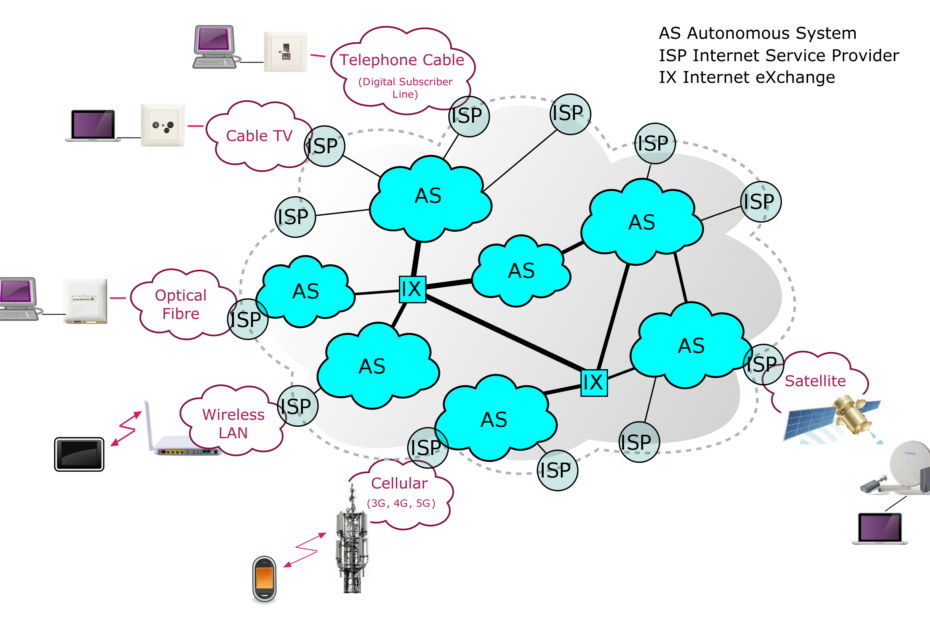A debate focused on “big tech” & “big telco”
Thierry Breton, the European Commissioner for the Internal Market wants major online platforms to contribute to the cost of telecommunications infrastructure. The distribution of wealth and added value, especially when talking about dominant and gatekeeping companies, is a fair debate that Europe clearly needs to have. However this debate makes a very unfair omission: It focuses only on “Big Tech” and “Big Telco”, while forgetting about the commons, alternative competitors, online communities and rural communes.
Internet exchange points: the glue that binds the internet
Net neutrality, one of the founding principles of the internet as it was conceived, is the principle that all content and all users should be able to benefit equally from its infrastructure. A data package sent through the network by an individual user, a small services provider or a server operated by a not-for-profit should have the same priority and global accessibility as any other package. Providers have an obligation to treat all traffic equally and provide connectivity to the whole internet. In practice providers exchange traffic at so-called internet exchange points (IXPs). There, all organisations, regardless of size or organisational form, have equal status and bear only their own cost. This allows many smaller organisations to participate independently on a level playing field and thereby create a network of networks.
Wikimedia projects and other not-for-profit organisations rely on an internet ecosystem where every user can access every content and competition happens on an equal footing. This applies especially to internet exchange points where every participant is considered as a peer. It is this non-commercial nature of the traffic exchange which binds the internet together to allow connectivity between all endpoints. This resilience and scalability – which has proven so vital in the COVID-19 pandemic – must be kept.
due process and preserve equal opportunities
We are concerned that a legal intervention in the way networks connect with each other and the monetisation of traffic flows between them can disrupt the equal opportunities of the internet ecosystem. Indeed, if legislation were to be put in place distinguishing between different services and network providers, we are worried that it could inadvertently penalise smaller providers and independent online communities, which often rely on cloud hosting. If you legislate with “Big Tech” and “Big Telcos” in mind, you will only get more “Big Tech” and “Big Telcos”.
We fully agree that faster internet, especially in remote and rural areas, is important. We encourage the Commission to transparently analyse who currently invests in rural broadband and what the real bottlenecks for network infrastructure buildup are. But we would caution against any hasty proposal which doesn’t follow the due diligence process of EU law making, like an impact assessment and a public consultation with all relevant stakeholders.
Opinion written by Naphsica Papanicolau of Wikimedia France & Dimi Dimitrov of Wikimedia Europe









